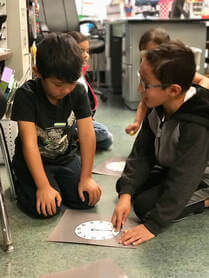Speaking is an essential language skill to develop. It's one of the four skills that most learners want to develop; it can also be one of the most challenging.
On this page, John Kongsvik reviews what speaking is, what it involves, and how to develop it in the classroom.

The four domains of language (or the four skills) are the four ways that we interact with language. We speak and listen; we read, and we write. Of these skills, two of the skills, speaking and writing, are considered productive skills since we create language with each of these. On the other hand, listening and reading are described as receptive skills because we are receiving the from an outside source. This is important to know because the type of skill (or language domain) it is determines how to support its development.
Definition: Speaking is communicating information through the spoken word.

Knowing and using the following in order to convey intended meaning:

Click the button below to claim your free ebook and join our mailing list.